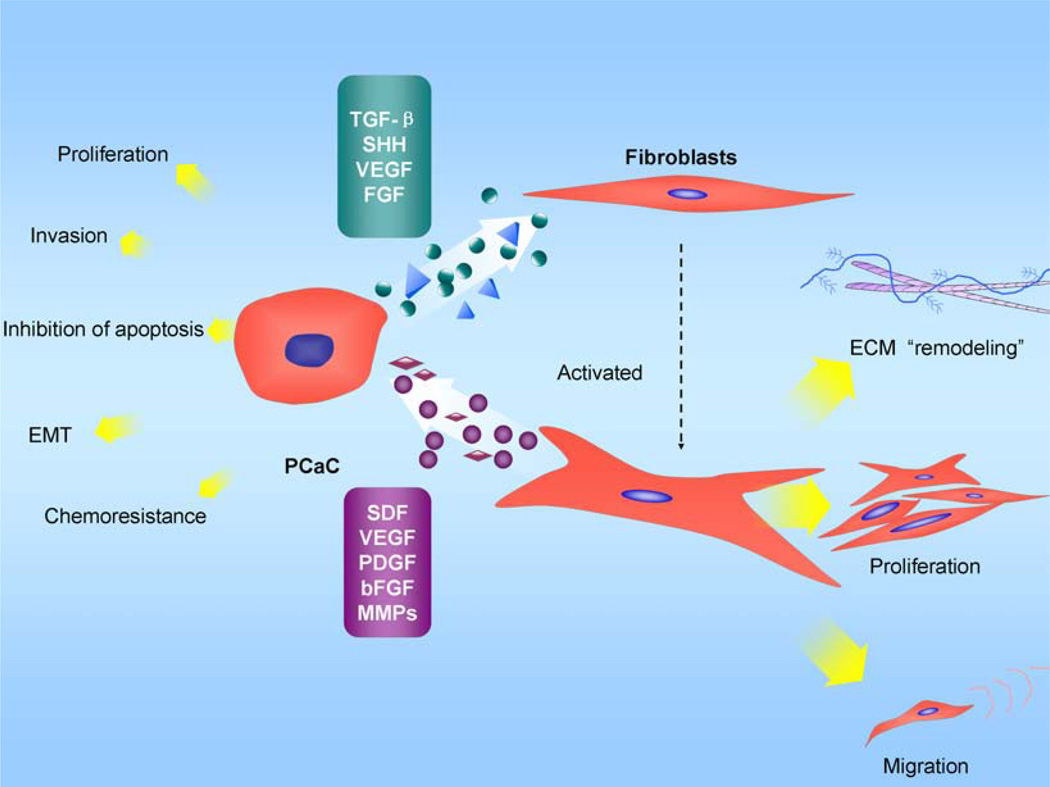Fig. (2). The interaction between pancreatic cancer cells and PSC.
Selected mediators and their effects on biological behavior changes are depicted. Transforming growth factor-β (TGF-β), platelet-derived growth factor (PDGF), and VEGF, which are secreted by pancreatic cancer cells, are known to induce PSC activation. Under the influence of these growth factors, PSCs are activated and transformed into a myofibroblast-like phenotype; the PSCs then secret excess amounts of extracellular matrix (ECM) and matrix degrading enzymes to remodel the cancer microenvironment. Simultaneously, the transformation promotes their proliferation and migration capacity. PSCs can also act on pancreatic cancer cells, which can affect their biological behavior. PSCs have a marked influence on promoting cancer cell proliferation through PDGF. Stromal-derived factor-1(SDF-1), EGF, IGF-1, or FGF, when secreted by PSCs, are also likely to display mitogenic effects on cancer cells. EMMPRIN, which is secreted by cancer cells, can increase the MMP-2 secretion by PSCs; MMP-2 has been associated with the invasive phenotype of pancreatic cancer cell lines. Resistance to apoptosis might be related to the increased expression of the anti-apoptotic proteins Bcl-2 and Bcl-xL and of the growth factors IGF-1 and FGF. Tumor-derived pancreatic stellate cells stimulate pancreatic cancer cell invasion likely through the release of thrombospondin-2 and β1 integrins. PDGF receptors of PSCs increase interstitial hypertension and reduce transcapillary transport in tumors and thus influence the transcapillary transport of drugs. SDF-1 can also influence the therapeutic outcome.

